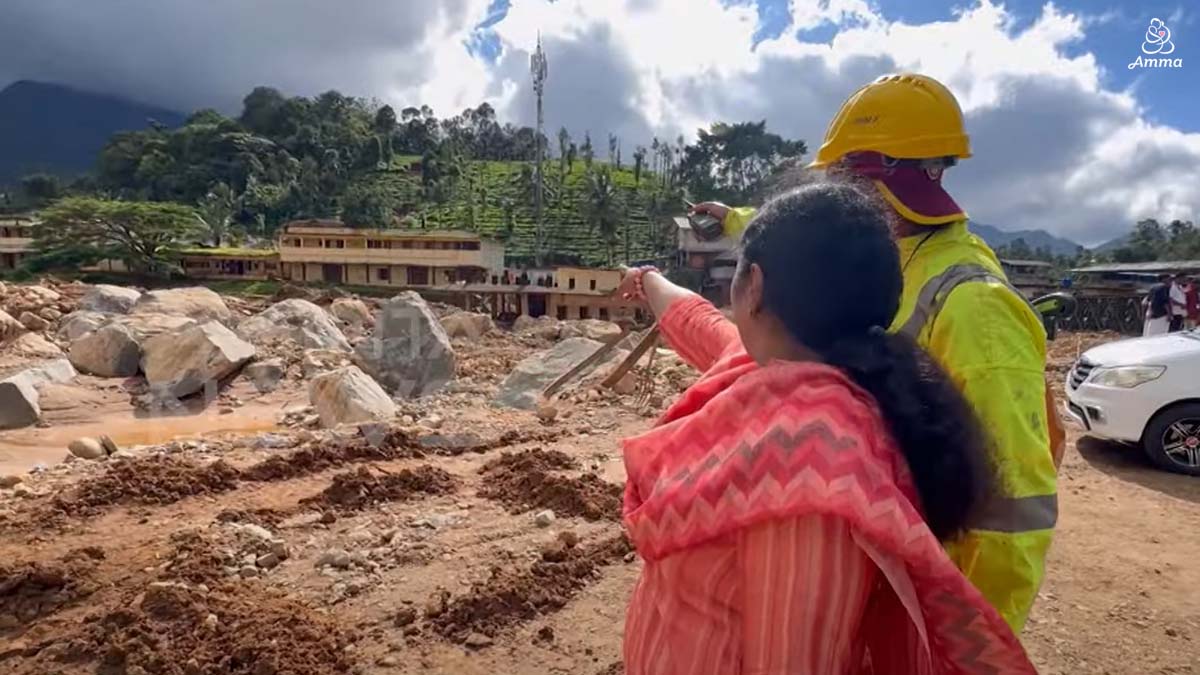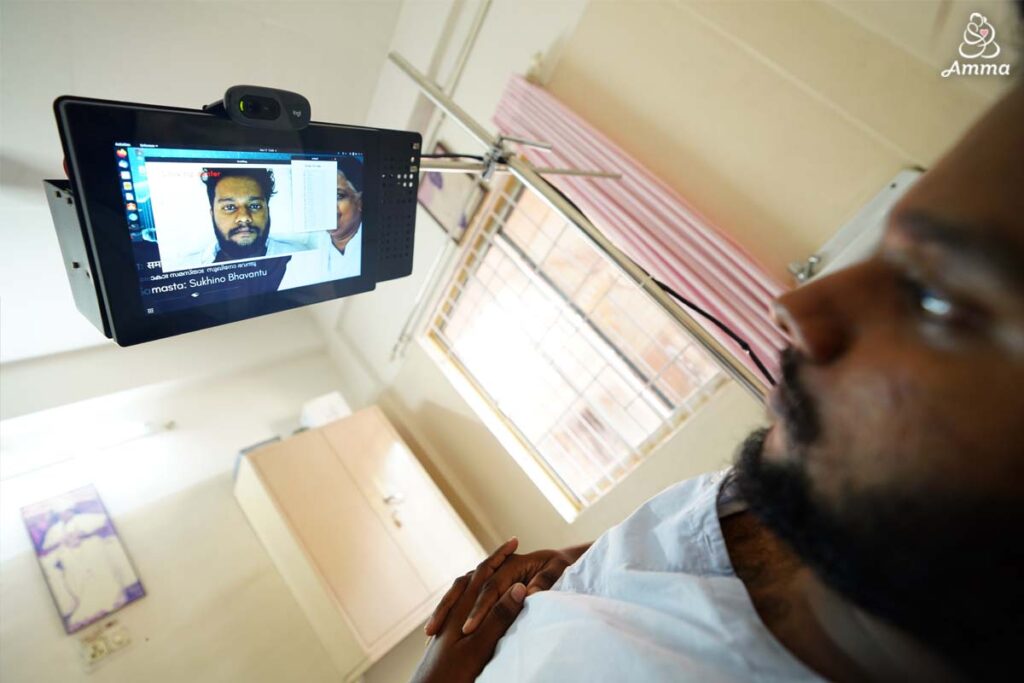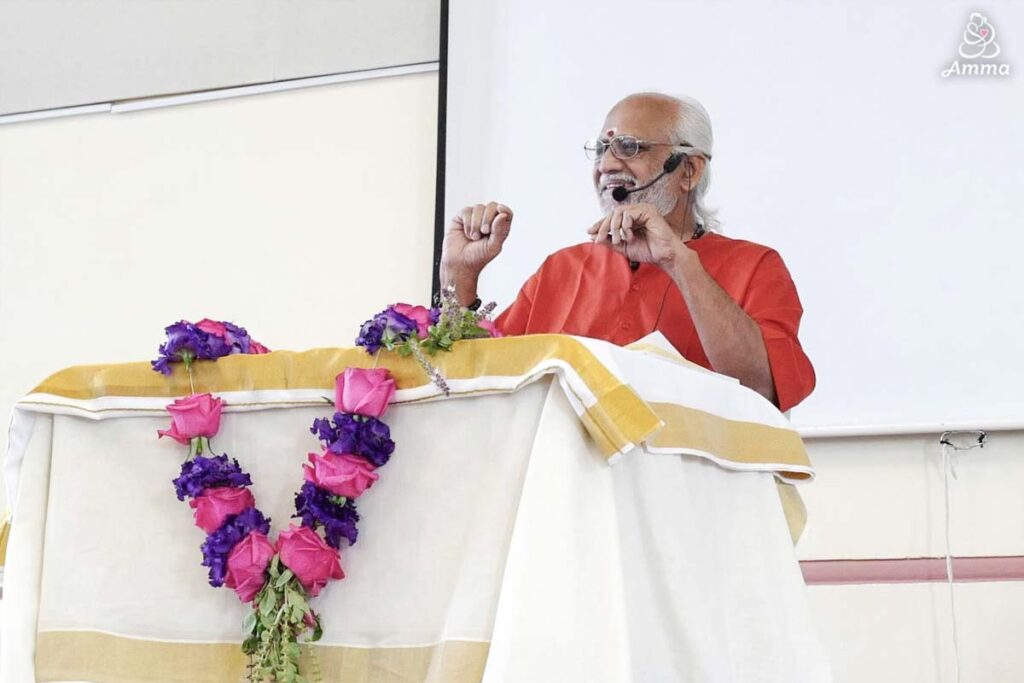An eight-member team with Amrita Wireless Networks & Applications (AWNA) conducted a crucial visit to the landslide-affected areas of Mundakkai, Wayanad. In collaboration with the Kerala State Disaster Management Authority (KSDMA), they assessed potential deployment of the Amrita Landslide Early Warning System (A-LEWS).
The massive disaster at the end of July this year claimed more than 400 lives. Amma has committed to fund the A-LEWS deployment, underscoring disaster preparedness and community safety.
Amidst changing climatic patterns, it is part of a broader mission to leverage technology and innovation for sustainable development and disaster resilience.
When the Wayanad landslides struck, we immediately dispatched emergency medical teams to provide free care in relief camps. As well, volunteers assisted with search & rescue, counselling survivors, performing last rites, and public clean-up drives.
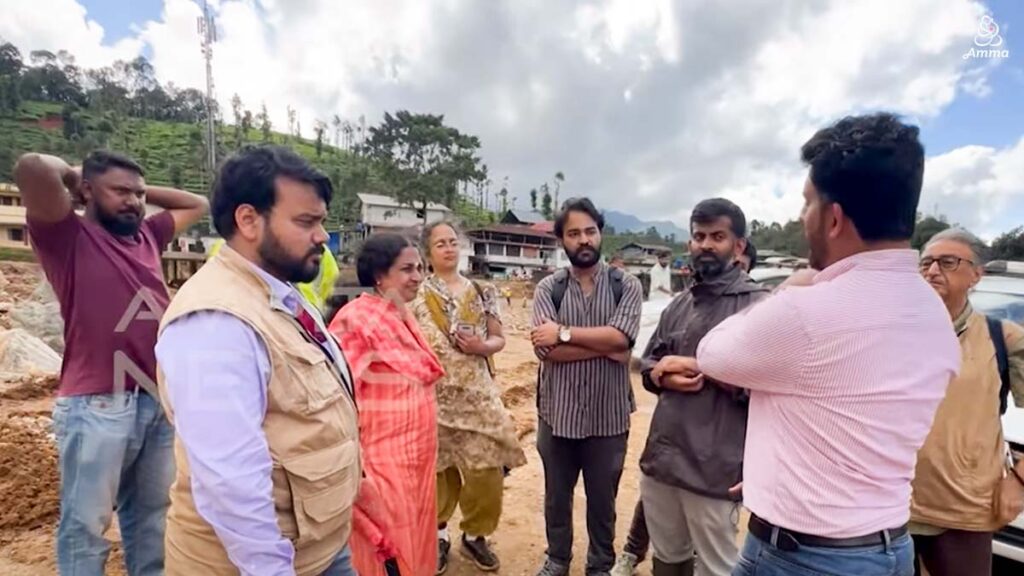
“The rise in such scenarios across the country underscores the urgent need for real-time systems to provide immediate insights into landslide initiation probabilities and to delineate potential impact areas,” said Dr Maneesha Vinodini Ramesh, Director AWNA and Amrita University’s Provost.
“Over the past decade, our landslide early warning system has significantly advanced our understanding of extreme weather patterns and their impacts.”
Just two weeks before the tragedy in Wayanad, landslides occurred 300 km south in Munnar in the Idukki district. Deployed there in 2009, the A-LEWS team was able to alert the district administration, which judiciously evacuated people to relief camps.
Soon after, a minimum of 27 landslides occurred in less than 20 square kilometres. Amrita has issued several such warnings over the years, saving countless lives.
“We are committed to continuously improving these systems and working with relevant agencies to mitigate disaster risks and save lives. Amrita is ready to collaborate with any stakeholders to create effective solutions for reducing disaster impacts and safeguarding communities,” stated Dr Ramesh.
As the world prepares for COP29 in November, this year’s UN Climate Change Conference, the success of A-LEWS was lauded by Sanjay Srivastava, Chief, Disaster Risk Reduction at UN-ESCAP. He emphasised how such tech ecosystems can avert loss and damage.
“The scale [of landslides in Munnar] was much lower, but another reason they did not cause much damage was because they were predicted, allowing for pre-emptive action, including evacuation of at-risk populations,” he said.
Srivastava added by seamlessly integrating meteorological, geological, and hydrological data through an IoT framework, A-LEWS delivers timely and reliable early warnings. The same was recognised in a UN-ESCAP blog post about COP29.
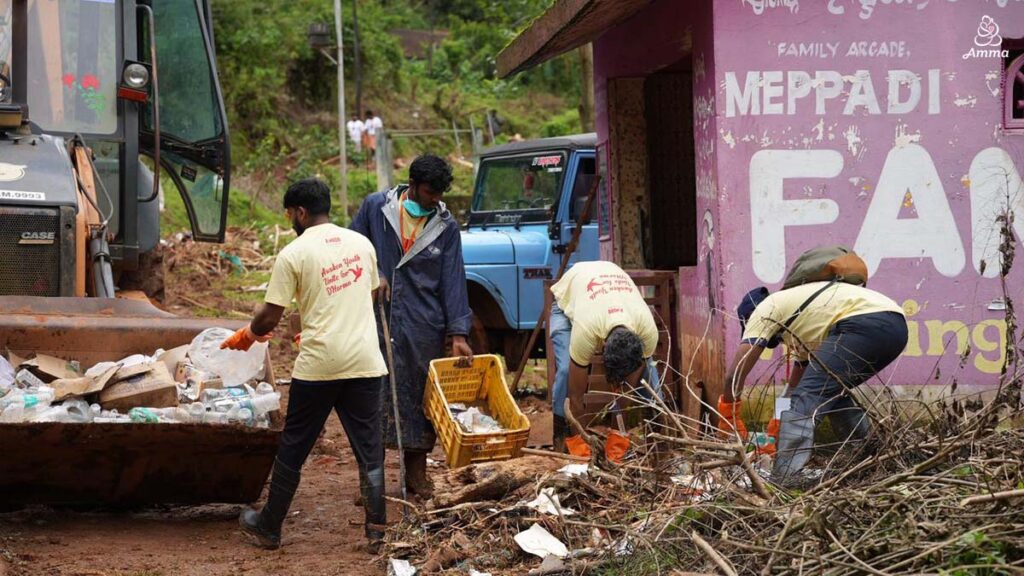
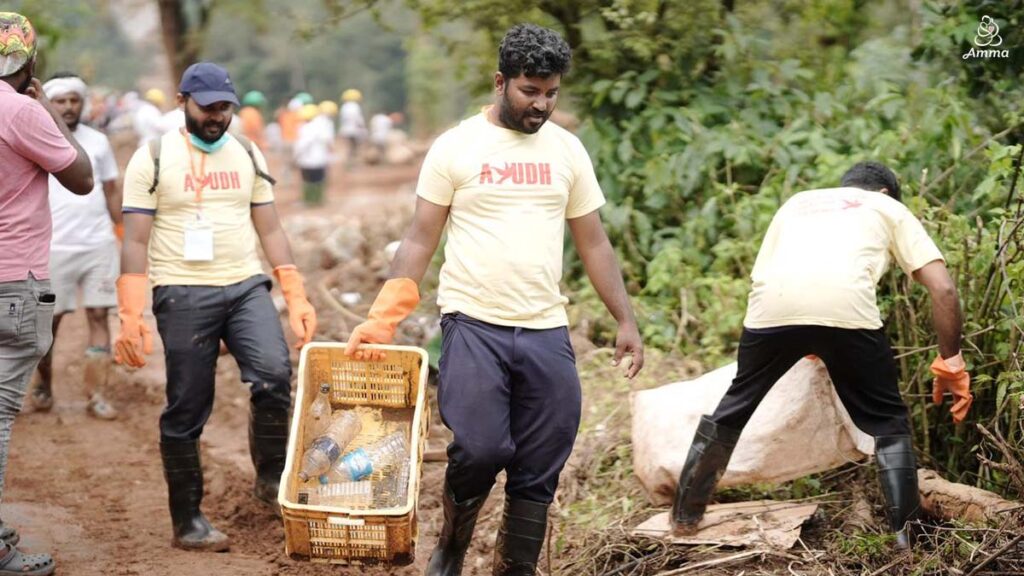
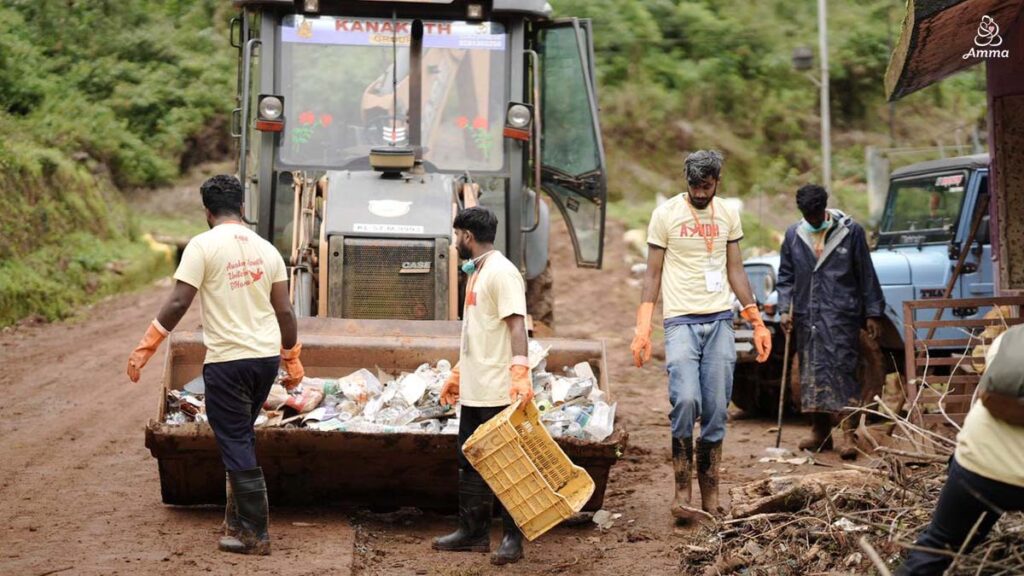
In 2015, at the request of the Govt of India, Amrita also deployed A-LEWS in Sikkim, Northeast Himalayas, which is a highly geologically active region. The Sikkim IoT system, co-funded by India’s Ministry of Earth Sciences, is in partnership with the Sikkim State Disaster Management Authority.
Both systems have successfully issued multiple advanced landslide warnings over the years, which have been critical in evacuating at-risk communities during torrential rains.
Overall, India’s vulnerability to landslides affects about 12% of its land and is on the rise due to climate change. With such high risk, the effectiveness of A-LEWS has encouraged further collaborations at the state level. Recently, Amrita signed MoUs with Odisha and Karnataka for installing the system.
Amrita’s innovative approaches have also garnered international recognition, earning the designation of a World Center of Excellence in Landslide Risk Reduction from the International Consortium on Landslides (ICL).
As well, in 2023, the prestigious Averted Disaster Award (ADA) named Amrita as the winner for outstanding disaster risk management intervention. ADA is an annual competition that seeks to bring visibility to successful programs and policies around the world.
The university’s efforts have also been praised by the Prime Minister of India, Shri Narendra Modi, reflecting its significant contributions to risk reduction and management at the community level.
Read more about our efforts after this year’s landslides in Wayanad.


